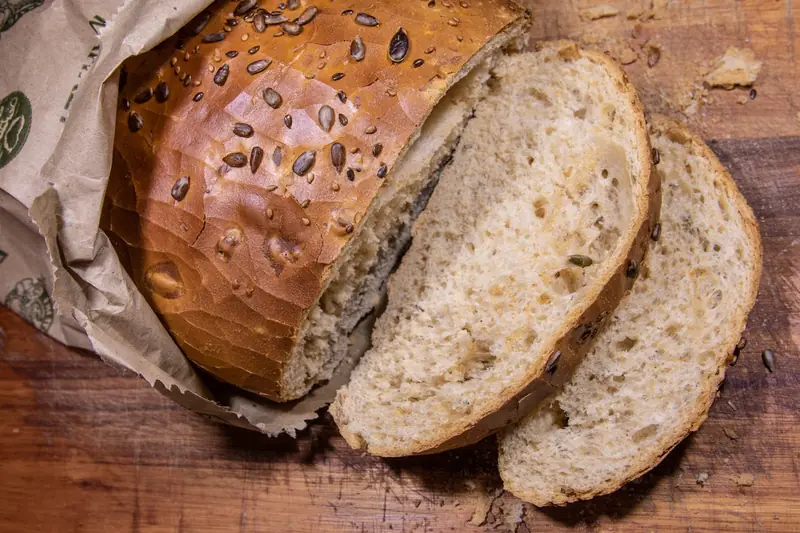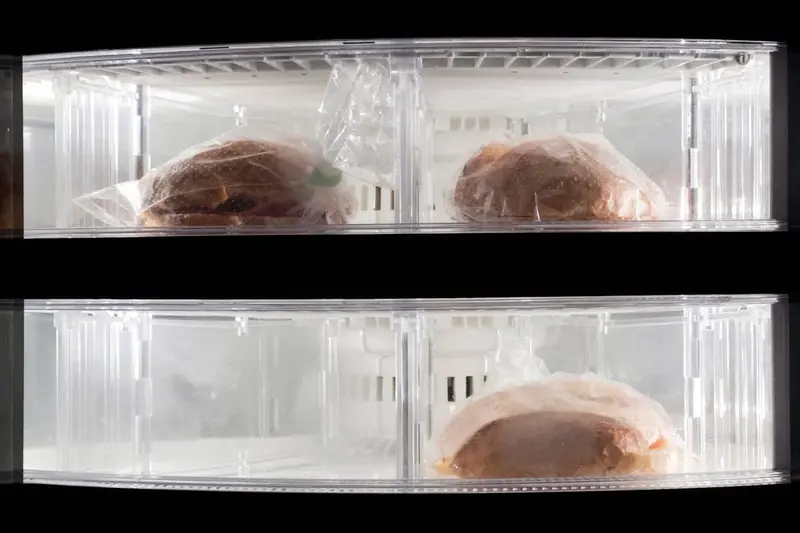
Supporters of this culinary hack often cite research findings that confirm its effectiveness.
Expert opinion on the benefits of freezing bread comes from Dwayne Mellor, head of the Evidence-Based Medicine and Nutrition department at Aston University in the UK.
According to him, the theory behind this trendy practice is indeed sound, albeit somewhat complex. However, the health benefits it offers are real, even if they are not as significant as many believe.
What the Scientist Explained
During the baking process, the moist dough with bubbles transforms into a soft, fluffy loaf. The heat of the oven, combined with the water in the dough, causes the starch in the flour to expand and gelatinize. This is similar to what happens when flour is added to a sauce and cooked until it thickens.
Gelatinized starches are easier to digest, making it simpler for our cells to absorb the glucose (sugar) contained in these starches. This is true for many freshly prepared starchy foods, especially those low in fiber or made from finely milled flour (like white bread).
Some scientists indicate that this type of quickly accessible glucose contributes to a spike in insulin levels right after eating. On one hand, insulin is crucial because it helps our cells use glucose for energy or store it for later use. On the other hand, excessive insulin can lead to feelings of hunger and even weight gain.
However, when a product is cooled significantly, its gelatinized starches condense. They become what are known as resistant starches, which are harder to break down by enzymes in the digestive tract. This means our bodies find it more challenging to absorb the sugar they contain. As a result, resistant starches are less likely to cause a spike in blood sugar and insulin levels after consumption.
The degree of resistance of the formed resistant starch depends on the baking temperature and where it is stored: in the refrigerator or freezer. The rate of condensation in the freezer is nearly twice as high as in the refrigerator. This means that more resistant starch will form, as reported by Science Alert.
Additionally, freezing bread retains moisture. Therefore, it stays fresher and softer than if we stored it in the refrigerator, where bread loses moisture and becomes hard.

So, Should You Freeze Bread?
Dwayne Mellor discussed a study that examined the effects of freezing white bread and then toasting it. The study involved ten healthy volunteers, through whom dietitians compared the effects of consuming store-bought loaves versus homemade bread.
Regarding homemade bread, freezing and thawing it reduced the increase in blood sugar levels by 31 percent over two hours. Interestingly, toasting fresh bread lowered the glucose spike by 25 percent, Mr. Mellor noted.
This effect was even more pronounced when homemade bread was frozen, thawed, and then toasted. After this process, blood sugar levels dropped by 39 percent. This observation could potentially help mitigate the effects of hunger, as consuming frozen bread does not lead to a significant spike in glucose and insulin levels.
The situation is different with store-bought white bread. Freezing it before toasting did not improve the body’s response to blood sugar levels. This highlights the differences in how store-bought and homemade bread are prepared.
Other subsequent studies have shown similar results. Thus, the effects of freezing bread now appear consistent and well-studied in laboratory conditions, according to the expert.
However, it is important to emphasize that this effect lasts only for a few hours after consuming the bread (!).
Therefore, freezing bread before a meal can help lower blood sugar levels during that meal (and somewhat affect the next one).
It is worth noting that resistant starch is not only harder to break down but also provides nutrients to the microbes living in the large intestine. This helps maintain a healthy balance of bacteria in the gut, and consequently, a healthy metabolism.
Another benefit of resistant starch is that it helps lower cholesterol. This effect is believed to be caused by short-chain fatty acids produced by gut bacteria during the fermentation of starches. And lower cholesterol levels, as we know, mean a reduced risk of cardiovascular diseases.
In other words, freezing bread has potential health benefits, although they may not be very significant. Moreover, as Dwayne Mellor pointed out, freezing bread in the freezer helps reduce food waste.

How to Properly Freeze Bread?
When freezing bread, it should be fresh but definitely not hot. First, slice it into pieces. Then, place it on a board or plate and put it in the freezer. Once the bread is completely frozen, transfer it to a bag or container and seal it tightly.
To thaw the bread, do not remove it from the packaging. The thawing process should occur at room temperature—several hours before consumption.
